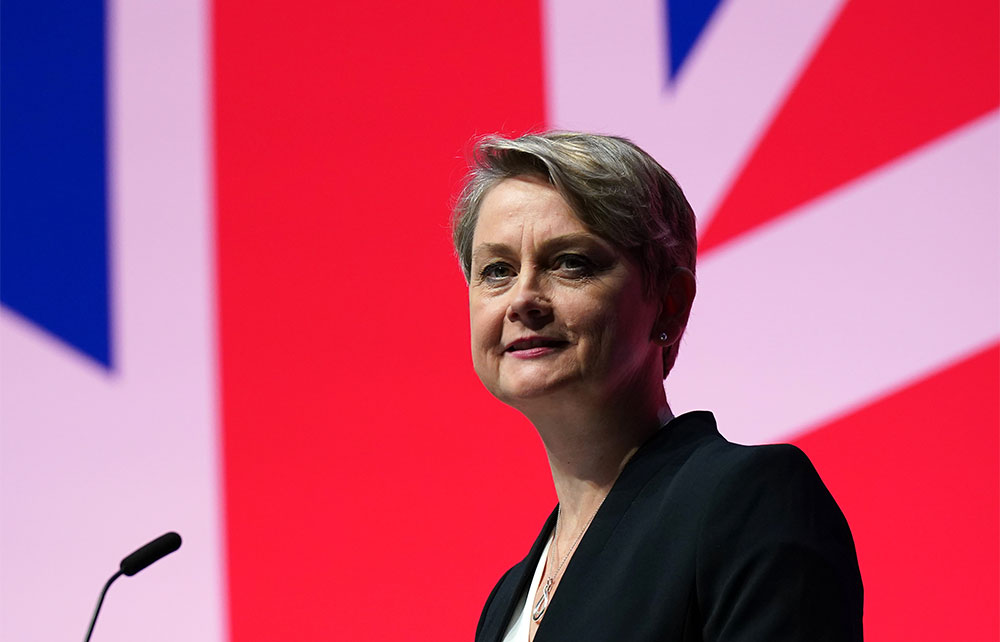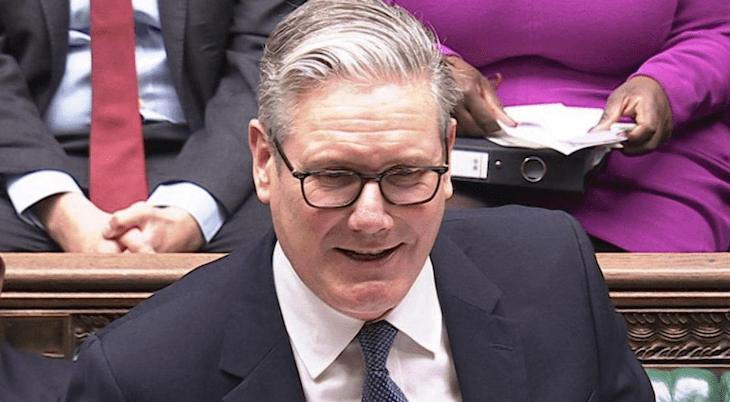Brexit was the issue that won the last general election for the Tories but botching it may well lose them the next. The Red Wall was attracted by the promise that after sovereignty was wrested back from Brussels, the UK would be able to control its immigration policy and employers would have to pay their workers more.
Instead, net immigration – the legal kind, nothing to do with small boats – hit 745,000 in 2022. This is double pre-Brexit levels and far higher than the government expected. No one knew quite how the new visa toolkit would work, and ministers are now scrambling to curb numbers. Higher salary thresholds have been imposed and rules on bringing over dependants have been tightened. The quarterly immigration figures published next week will be vital to Sunak’s claim to be making progress.
Labour has the inverse problem to the Tories: the leadership is more migrant sceptic than its backbenchers
Asylum claims fell by about a third over the course of last year, with an even faster drop for health and social care visas. After peaking at 18,300 a month the summer before last, these had collapsed to 2,400 last month. This strategy may leave the NHS depleted and universities howling at a drop in foreign students paying higher fees, but right now many Tories remain indifferent. ‘I wouldn’t give a damn if ten mediocre universities dependent on dodgy visas collapsed,’ says one former cabinet minister.
James Cleverly, the Home Secretary, has promised ‘the biggest ever cut in net migration’. He’s keen to stress that the UK’s Rwanda scheme is closely in line with mainstream European opinion. Just last week, Friedrich Merz, the leader of Germany’s Christian Democrats, said that Britain’s Rwanda plan is ‘something we can emulate’. ‘It’s a long way from the open borders of 2015,’ remarks one minister.
If Labour comes to power after the general election, the party could find itself on the wrong side of a global trend. Governments on the centre-right and centre-left are moving fast to reduce migration. Even the ultra-liberal Justin Trudeau now warns that immigration has ‘grown at a rate far beyond what Canada has been able to absorb’. New Zealand’s visa rules are being tightened after net migration hit ‘unsustainable’ levels. In Australia, the ruling Labor party plans to halve the migrant intake over the next two years. The common cause between these three nations is a housing crisis, triggered by rising demand and inadequate supply.
Canada in particular is a source of inspiration for younger members of Rishi Sunak’s party. Pierre Poilievre, the opposition leader, has explicitly wedded migrant-scepticism to his pro-growth philosophy. He wants immigration to be cut so population expansion can be slowed to a level that can be met by the supply of new homes. ‘We need to make a link between the number of homes built and the number of people we invite as new Canadians,’ he said earlier this year. By framing lower numbers as an appeal to younger voters’ self-interest, polling suggests the Canadian Conservatives will win over 40 per cent of under-thirties. In Britain, three millennial Tories, Simon Clarke, Bim Afolami and Robert Jenrick, have praised Poilievre as a model for the future.
Even One Nation Tories privately concede that the political centre of gravity appears to be tilting to the right on migration. Before, the common assumption in the party was that immigration had a positive net economic impact and only a minority argued otherwise. The view was that, in the words of one Conservative, ‘if you were anti-immigration, you had to compromise on growth’. Yet now, increasingly, there is a right-wing consensus that high levels of net migration damage productivity and are therefore bad for GDP per capita (which is 1.2 per cent smaller than it was before the pandemic).
A slew of thinktanks are churning out research to buttress this view. The 30 New Conservative MPs are working on a paper that warns that Surrey risks being ‘concreted over’ if migration remains high. New alliances are being formed as the torch shifts from what one Tory calls the ‘libertarian right’ to the ‘provincial right’.
When they were in government together, Suella Braverman and Liz Truss fell out over the question of whether to liberalise work visas, yet both share a frustration with the Office for Budget Responsibility’s working assumption that every 100,000 immigrants mean £1 billion more ‘headroom’ to lift spending or cut taxes.

Keir Starmer’s party has the inverse problem to the Tories: the leadership is more migrant sceptic than many of its backbenchers. The thinktank Labour Together will soon publish a series of reports that explore the lessons from five centre-left governments that struggled in power. One will argue that failure to control migration can do more damage to a centre-left government than any other issue. With net migration expected to even out at around 300,000 next year and for the two following years (a rate which far outpaces the housing supply), Labour will have to do something.
The shadow cabinet is split on how best to approach the question of legal migrants. Jonathan Reynolds, the shadow business secretary, talks about migration being just one part of a broken economic model that can only be fixed by a holistic approach that includes policy in areas such as industrial strategy. Others, such as Yvette Cooper, the shadow home secretary, are happy to acknowledge that numbers are too high but prefer not to give an arbitrary target – like David Cameron’s infamous ‘tens of thousands’ figure. The danger is that a bolder approach could lead to missteps such as Darren Jones’s interview which suggested Labour wanted to see a ‘couple of hundred thousand a year’ in net migration, which does sound horribly like a Cameron-style target.
The incentives within Labour are for higher, not lower, immigration. Its three biggest trade unions – Unison, Unite and GMB – all represent workers within the social care sector. Most university cities will be represented by Labour MPs after the next election. In opposition, Cooper can call for lower numbers but in government, the Home Office is often outgunned by spending departments and the Treasury.
With sensitivities running high, Starmer needs to take care in how he handles migration. A glance across the House of Commons will remind him what happens to parties that get it wrong.








Comments